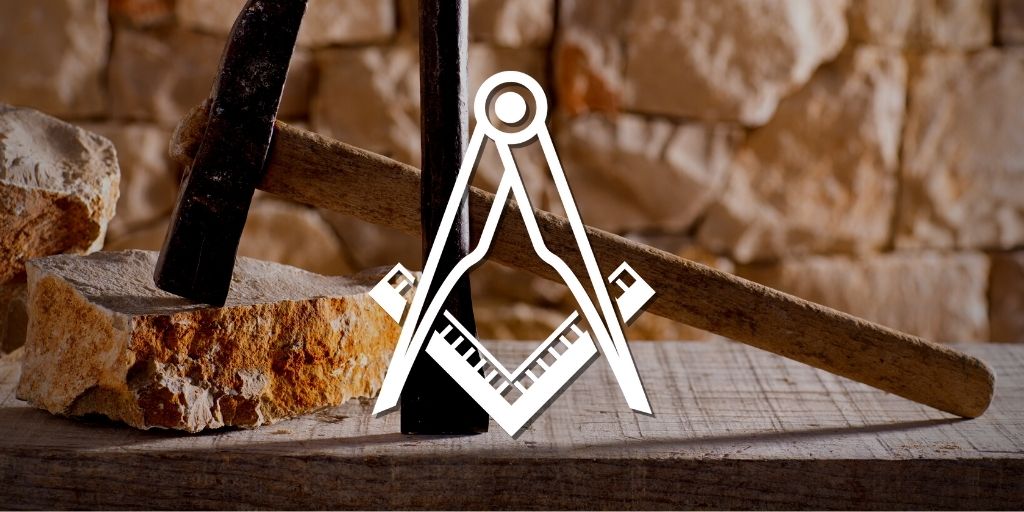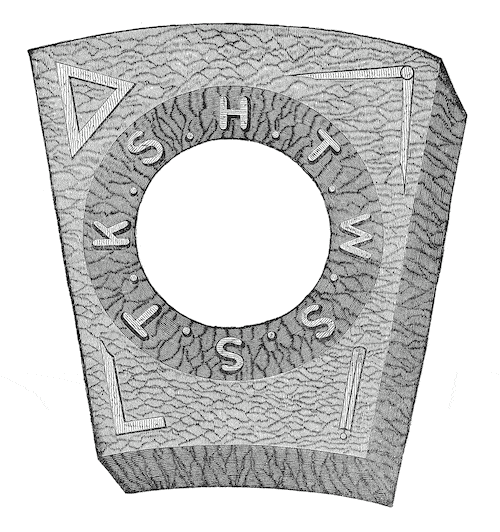Freemasonry, often enveloped in an aura of mystery and tradition, carries the affectionate nickname ‘The Craft’.
This term, far from being a mere colloquialism, is rich in historical context and symbolic depth.
It evokes a legacy of skill, ethics, and brotherhood that stretches back to the medieval stonemasons.
But the significance of ‘The Craft’ extends beyond its historical roots, infusing Freemasonry’s contemporary practices with profound meaning.
TLDR: Freemasonry is affectionately known as ‘The Craft’ due to its historical roots in medieval stonemasonry, symbolizing the building of one’s character and morals.
This term underscores Freemasonry’s commitment to personal growth, ethical conduct, and brotherhood, serving as a bridge between its past as a craftsman and its present as a fraternity dedicated to self-improvement.

The Medieval Stonemasons
To fully grasp why Freemasonry is known as ‘The Craft’, one must journey back to the Middle Ages.
The original craftsmen behind this term were the stonemasons, artisans responsible for constructing Europe’s architectural marvels.
These masons weren’t mere laborers but skilled workers who held secret knowledge and techniques passed from one generation to the next.
Their craftsmanship was a combination of physical skill, artistic expression, and intellectual endeavor, setting the foundation for what would become Freemasonry.
Transition to Freemasonry
As these medieval guilds evolved into modern Freemasonry, they retained not only the stonemasons’ terminology but also their ethos.
‘The Craft’ became synonymous with the building of one’s moral and ethical character, mirroring the stonemasons’ dedication to their physical craft.
This metaphorical construction underpins the Freemason’s pursuit of self-improvement and personal development, reflecting the fraternity’s core values.
The Ethos of Freemasonry i.e. ‘The Craft’
At the heart of ‘The Craft’ lies the concept of building, not just of stone and mortar but of the self.
Freemasonry views participation in the fraternity as a form of craftsmanship, where members are both the craftsmen and the materials being shaped.
This process of self-improvement is akin to the meticulous work of a craftsman, emphasizing the importance of personal integrity, ethical conduct, and continuous learning.
Brotherhood and Mutual Support
Another key facet of ‘The Craft’ is the emphasis on fraternity and mutual support among Freemasons.
Echoing the collaborative spirit of the medieval stonemasons, Freemasonry fosters a sense of brotherhood, where members share knowledge, offer mutual aid, and undertake collective endeavors.
This camaraderie is central to Freemasonry’s identity, valuing the collective over the individual.
The Symbolism and Tools of ‘The Craft’

The Language of Stonemasonry
Freemasonry’s symbolic language is deeply rooted in the tools and imagery of stonemasonry.
Instruments like the Square and Compasses are not merely symbols of the fraternity but also serve as moral and ethical guides for its members.
These symbols, derived from the craft of masonry, impart lessons on integrity, equality, and the pursuit of knowledge, linking Freemasonry’s current values to its historical origins.
Lessons in Morality and Ethics
The use of stonemasonry symbols extends beyond mere representation; it embodies the lessons of ‘The Craft’.
Each tool and symbol within Freemasonry is imbued with moral and ethical significance, guiding members in their personal and collective journeys.
This symbolic framework reinforces the fraternity’s commitment to building a morally upright and ethically sound community.
‘The Craft’ Today: A Bridge Between Past and Present

Honoring Tradition while Embracing Change
By adopting the title of ‘The Craft, ‘ Freemasonry acknowledges its rich heritage and the timeless values it represents.
This designation serves as a bridge, connecting the fraternity’s storied past with its dynamic present.
The Contemporary Significance of ‘The Craft’
In modern Freemasonry, ‘The Craft’ is more than a historical reference; it is a living philosophy.
It encapsulates the essence of being a Freemason, highlighting the fraternity’s commitment to personal growth, ethical conduct, and brotherly love.
Through ‘The Craft’, Freemasonry continues to offer a path of self-discovery and improvement, adapting its ancient principles to the needs of the contemporary world.
The term ‘The Craft’ embodies the multifaceted identity of Freemasonry, from its historical roots in the guilds of medieval stonemasons to its current role as a fraternity dedicated to ethical living and personal development.
It is a testament to a legacy of skill, ethics, and camaraderie that not only traces back centuries but also remains vibrantly alive in the practices and values of Freemasonry today.
By exploring the depths of ‘The Craft’, we uncover the rich tapestry of symbolism, tradition, and community that defines Freemasonry, offering insights into its enduring appeal and significance in the modern world.